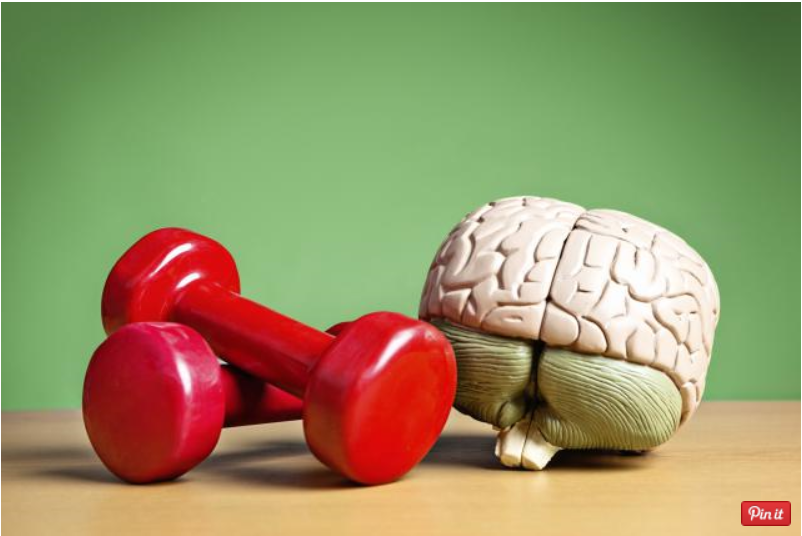Researchers are still debating the potential power of brain training, but there is one proven technique that neuroscientists recognize as a powerful booster of brain health – exercise. Regular physical activity has been shown to prevent brain shrinkage as people age and improve cognitive functioning both now and throughout life. Exercise can even make you smarter.
In addition to helping people reduce their risk of stroke, diabetes, and heart disease, regular exercise has been shown to aid in neurogenesis, or the formation of new brain cells, in critical regions of the brain. It also enhances cognitive skills, improves memory, boosts mood, and reduces stress.
Let’s take a closer look at 3 important ways that exercise benefits the brain.
Walking Can Improve Brain Function
Here’s one more reason to avoid being a couch potato – a recent study published in Frontiers in Aging Neuroscience found that walking at a moderate pace for 40 minutes three times a week can improve connectivity in the brain. This moderate physical activity can also help increase performance on cognitive tasks and battle age-related mental declines.
“Almost nothing in the brain gets done by one area — it’s more of a circuit,” explained researcher Art Kramer, University of Illinois psychology professor and Beckman Institute Director. “These networks can become more or less connected. In general, as we get older, they become less connected, so we were interested in the effects of fitness on connectivity of brain networks that show the most dysfunction with age.”
One network of key interest in this study is known as the default mode network (DMN). Earlier research had shown that declines in the DMN were associated with aging and could even be an indicator of diseases such as Alzheimer’s.
Using functional magnetic imaging (fMRI), researchers found DMN connectivity had increased significantly for participants in the walking
“The higher the connectivity, the better the performance on some of these cognitive tasks, especially the ones we call executive control tasks — things like planning, scheduling, dealing with ambiguity, working memory and multitasking,” Kramer said.
Heart Health Impacts Brain Aging
Here’s one more excellent reason to keep your heart healthy – researchers have found that brains appear older in people whose hearts pumped less blood. According to the new study published in Circulation: Journal of the American Heart Association, having a low cardiac index, or the amount of blood pumped in relation to body size, was linked to lower brain volume as seen with magnetic resonance imaging (MRI).
Brain volume tends to shrink as people grow older, and people suffering from Alzheimer’s and other types of dementia show even more severe brain shrinkage. This study found that a group of participants with the lowest cardiac index had nearly two additional years of brain aging than a group of participants with the highest cardiac indexes.
Exercise Keeps Your Brain from Shrinking as You Age
Brains age just like our bodies. Researchers have found that being physically fit during middle age can actually minimize some of the damaging effects that the aging process has on the brain.
In one study presented at the 2015 American Heart Association EPI/Lifestyle meeting, researchers revealed that people who had been in poor physical fitness during their 40s exhibited greater shrinkage in brain volume during later adulthood.
In the study, the researchers looked at data from more than 1,200 individuals who were part of the larger Framingham Heart Study. They then assessed these individuals using MRI’s and cognitive tests when the participants were around the age of 60.
So how exactly does exercise and being physically fit protect the brain from age-related shrinkage? The researchers believe that the exaggerated blood pressure fluctuations that happen in people who are in poor physical shape cause damage to the brain, resulting in structural changes to the brain and cognitive declines.
Read the full post in about education













